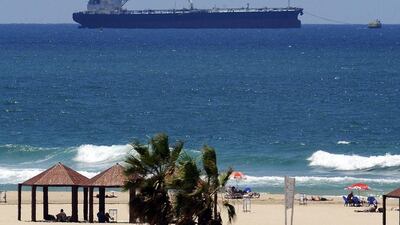Iraq’s Kurds have succeeded tactically in boosting their economic and political leverage to help them achieve greater independence.
Since the country’s second biggest city, Mosul, fell on June 10 to militant groups, the Kurdish leadership has worked quickly and systematically to advance its interests as Sunni and Shiite politicians squabble over how to retake the city.
One of the key elements for Kurdish success is the sale on international markets of oil produced in the Kurdish region of Iraq.
Israel received the first shipment of disputed Kurdish oil over the weekend, weeks after the first tanker to leave Turkey’s Ceyhan oil terminal failed to berth amid threats by Baghdad to take legal action against a buyer. A Bloomberg report said crude carried on the first tanker, which has struggled to dock, was up for sale at “half price”.
That would suggest that the Kurds had miscalculated their chances of a fully successful transaction.
However, the KRG has insisted that it “would never consider exporting and selling the natural resources of Iraq at ‘half price’, either now or in the future”.
That stance came in a statement on the KRG government website dated June 19, which further said that “the KRG sells oil through the pipeline to Ceyhan [in Turkey] on an international commercial basis ... and it is able to deliver cargoes to its customers on its own vessels”.
Moreover, it said, “export volumes are expected to double within the next weeks.”
The autonomous Kurdish Regional Government believes that it has a constitutional right to independently sell crude, while Baghdad argues that oil contracts and exports must be approved at the federal level. The Kurds have made their ambitions for devolution public, but analysts have argued that neighbouring states would stand in the way of full independence from Iraq.
“The Kurds have been so weak historically and have been divided internally before, but they are now much more cohesive,” said Ali Khedery, the architect and chief political negotiator for Exxon’s entry into the Kurdish region and the longest-serving American official in Iraq.
“They never had an independent means for revenue but now everything has changed completely,” Mr Khedery said. He serves as the chairman and chief executive of Dragoman Partners, a strategic consultancy headquartered in Dubai.
Erbil and Baghdad have also been at odds over whether Kirkuk, which sits on a vast wealth of untapped oilfields, belongs to the Arabs or the Kurds.
Turmoil and the withdrawal of national security forces in the northern part of Arabised Iraq provided a chance for the Kurdish peshmerga forces on June 12 to occupy the disputed city, a dream unimaginable since the 2003 United States-led war on Iraq.
The KRG secured a deal last year with Turkey to independently channel Kurdish oil through a new link to the main northern pipeline, which runs from Kirkuk to Turkey’s oil terminal at Ceyhan. Payments from customers are made into the KRG’s account in Turkey.
Since the takeover of Kirkuk in recent weeks, the Kurds have built a link connecting Kirkuk to a separate newly built pipeline to Turkey, which would allow the Kurds to potentially export crude from Kirkuk through their own network.
Turkey has become an invaluable ally for the Kurds, and relations between the president of the KRG, Masoud Barzani, and Turkey’s prime minister, Recep Tayyip Erdogan, tightened further after the two heads met in the Kurdish city of Diyarbakir in Turkey in November.
“The meeting between Barzani and Erdogan and the Turkey Kurdistan development [was] a huge historic strategic event that not many people understand yet,” Mr Khedery said.
Turkey, which is a G20 economy, would, by solidifying its ties with the Kurds, “be liberating itself from Iranian and Russian gas, in which there are tensions on both fronts”, Mr Khedery added.
Opponents of Kurdish Iraq, which wants full independence from Baghdad, have argued that neighbouring countries – Iran, Turkey and Syria – that have a minority Kurdish population will stand as a major obstacle against their ambitions for independence.
“Those who question the Turkey-Kurd alliance are foolish,,” Mr Khedery said. “It’s a major development that balances the power in the Middle East, a huge deal for the Turkish economy that will create thousands of jobs, and it opens the way for Kurdistan to have an independent source of revenue.”
halsayegh@thenational.ae
Follow us on Twitter @Ind_Insights

